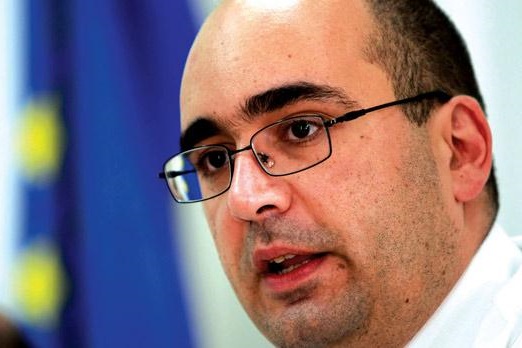Interview with Kevin Bonello, President of Malta Union of Teachers: We don’t blow trumpets – but we achieve
Published:
What are the main issues at stake for Malta Union of Teachers?
The bi-polar political climate with two ruling parties that we have in Malta is one of the biggest issues which is highly volatile and trade unions have to be careful on how to approach it. MUT’s constitution states that the Union has to be apolitical and detached from all political parties. In the last years, we have built an infrastructure which allows us to inform members on a regular basis about what is going on. Until a few years ago, members had little or no access to information except for scattered press releases which could be interpreted in various manners by the media. Nowadays, all our members have access to information which explains why the Union has taken this or that action, and this or that position. Members may also contribute ideas and suggestions freely via social media outlets, emails and meetings. This new structure means that all our members, irrespective of their political creed and background, know exactly what their Union is doing, saying and working on and they do not need to rely on the interpretations given by media outlets. Moreover, nowadays, it is rare to find the major media houses ignoring our press releases or press conferences, and many journalists have told us that they enjoy covering MUT since we are not biased.
What are the most significant successes achieved by MUT in the past few years?
The solid structure of our organisation has led us to acquire various achievements which had been in deadlock for many years. For example, until 24 months ago, all educators who had resigned and later returned to service needed to start from scratch, whatever their previous experience was. As a result of the bridging agreement signed between MUT and Malta government, now, any person who returns to work is placed on the salary point according to his/her previous job experience. Another achievement is the IT agreement: in Malta we had a lot of investments in technology for the classrooms and we forced the government to enter negotiations which led to wide ranging separate agreements on the e-learning platform in the primary sector (including the use of Interactive Whiteboards), the e-learning platform in the secondary and post-secondary sectors (IWB included), as well as the use of tablets in the primary sector, provision of new up-to-date laptops for all educators, and instalment of permanent PCs in classrooms which are connected to IWBs.
MUT has also done a lot to make Malta government improve teachers’ pay rates and working conditions: Malta is perhaps one of the few EU countries where educators had a general wage rise of around 10 to 12% over the last 5 years. We also concluded an agreement where finally, after many decades, we made a breakthrough in a basic principle that all educators must have an access to paid study leave to enhance their qualifications in the field. Other significant agreements cover provision of support services in schools, including an upgrade of conditions for professionals in these fields and conversion of definite contracts into indefinite jobs; two agreements where the precarious conditions of supply educators were tackled and where we used a combination of training and experience to guarantee all these persons a promotional avenue into regular grades as well as a chance to get an indefinite contract; and finally, the agreement on the introduction of mixed gender schools which was introduced at secondary level just three years ago.
In your opinion, what is the secret of successful education trade unions?
All the achievements mentioned above, as well as others, were concluded in the period of five years, and not by an army of people but just by three full-time trade unionists, which we increased to four only last year. Therefore, I think that nothing is impossible if your organisation is independent, credible and puts members’ professional needs before anything else.